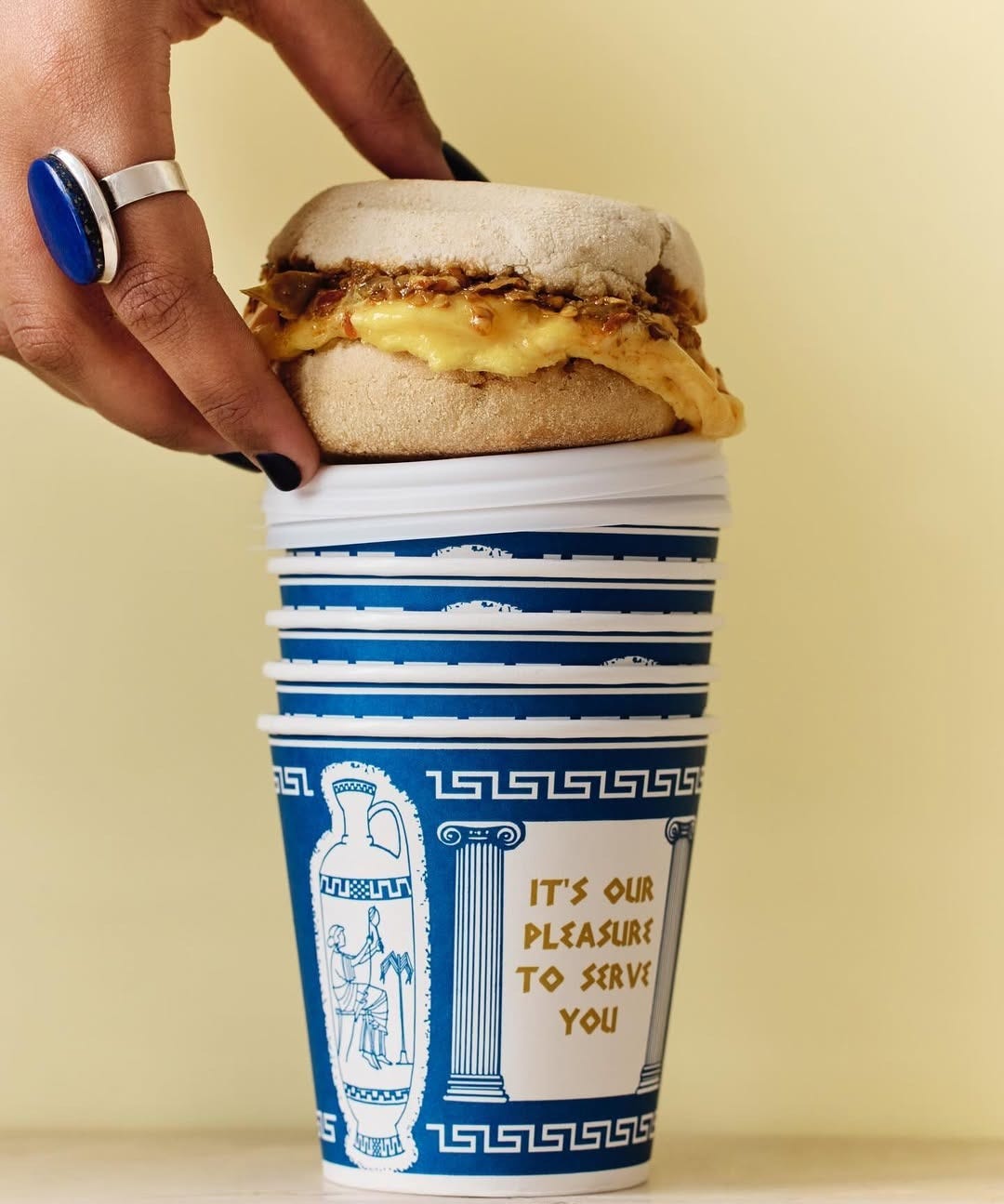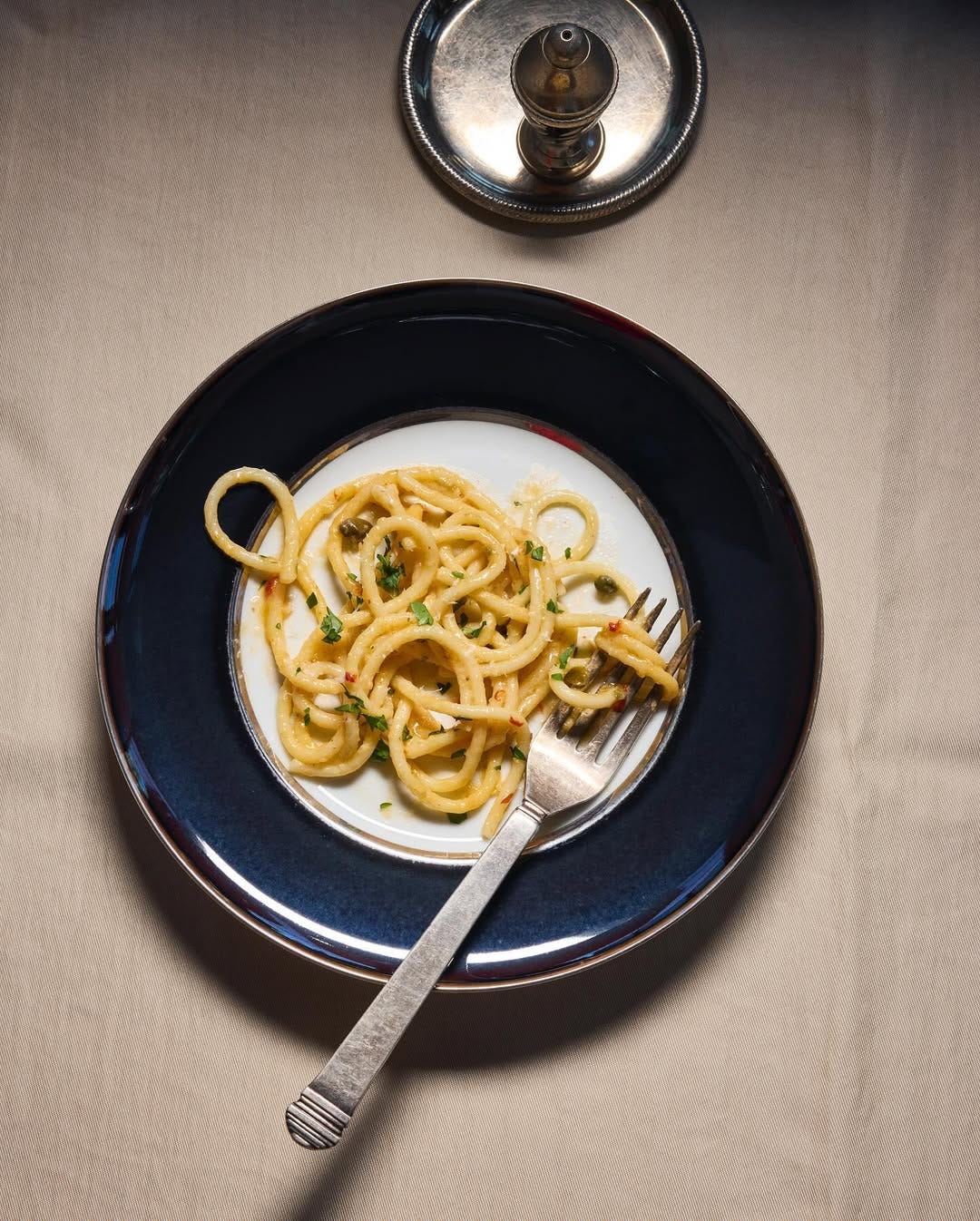"I want people to feel empowered to cook from my book."
Zaynab Issa on the cookbook writing process, balancing family and new recipes, and working with recipe testers.
ICYMI, I chatted with Zaynab Issa about her globally-influenced recipes and path to food media. She is coming out with her first cookbook next year, Third Culture Cooking, and I helped test a recipe for the book. In part two of our conversation, we talk about the cookbook writing process, balancing family and new recipes, and working with non-professional recipe testers like me. Stay tuned for a recipe from her book next year!
Brianna Plaza: How did you get your cookbook deal?
Zaynab Issa: Third Culture Cooking is my commentary on American food as a child of immigrants, so you'll see a lot of different influences. It's kind of like a memoir in a lot of ways because it takes a lot of memories and transforms them into dishes that I cook a lot. The recipes are highly cookable and the photos are stunning, but I hope they're not intimidating. I want people to be able to feel empowered to cook from it because the considerations have been made. I've thought about these recipes so much so that people can make them with success and enjoy them.
The cookbook deal came from me having conversations with my talent manager who I started working with after my videos were doing well on social. She introduced me to a book agent and who basically listened to my idea to see if it had merit. They basically give you a template for a proposal and then you go from there. They have connections to sell the proposal, which is where the publisher comes in. The agent is the middleman between you and the publishing houses, and while you can sell direct to the publisher, the agent acts as the manager for the publishing house.
They help you get the best deal, and make sure all your bases are covered. From there, it’s generally a two year process, but for me it was a little bit longer. It will be about three and a half years for me, but that’s because I was working during part of the writing. I know people who have written cookbooks while they’ve been working in food media, but for me it was incredibly challenging to wear all those hats. I was doing the job at Bon Appétit for experience, and I found it to be a very fulfilling job. It was work I deeply enjoyed and I learned a lot. I kept my job at the magazine, and then I'm trying to develop recipes for the cookbook while I'm developing recipes for the magazine, and while I'm developing recipes for brands. I made the decision that after two years, I felt that if I wanted to be able to give the book my all, I needed to let something go.
Brianna Plaza: If you’ve submitted the manuscript, why is there another year until it comes out?
Zaynab Issa: The manuscript must be proofed and copy edited by your editor at the publishing house. They check it for style, all of the little things. Poke holes, ask questions. Then the other thing that’s happening is the design, setting the pages, and developing the visual identity of the book. That all happens after the manuscript. The manuscript is basically my unedited thoughts. My recipes are written, my headnotes are written. All the info that needs to be in the book is there, now we’re just going to make it better through the editorial expertise of my editor.
All of my photos had to be shot by the time I submitted the manuscript, so everything got handed over to the publisher at once. That's not typical from what I've heard from other authors. A lot of times they want to check the manuscript first and then you shoot. I don't know if it was a testament to their trust in me, or just the way they like to do things, but they were like, “If you feel good about your recipes, go and shoot them." It was great because I got to make certain considerations. On set things happen — maybe a different herb is used and creative liberties get taken — and I got to make sure that there was no inconsistency between the recipes and photographs.
Brianna Plaza: How much do you balance family and new recipes?
Zaynab Issa: I would say that the family recipes are not necessarily the recipes most people would reach for on the average week. They are definitely representative of a lifestyle that has more time for cooking. So with that being said, I don't like to focus on them because I just don't feel like that's how the average person cooks today. And the style of my Bon Appétit recipes, which are a little bit more makeable and easy, is kind of the main style of the cookbook.
I did a small section of 10 recipes in the cookbook that are directly from the women who taught me to love to eat and cook. Those are the more traditional recipes. They're exactly as they are. I haven't food edited them for style or clarity. They're the way this person taught me. The hand I had in them is measuring the ingredients. If they tell you to do something and then go do something else and then come back to this, I'm following their every move because I believe that the method is just as important as the ingredient list in terms of making someone's recipe their recipe.
As far as the themes in the cookbook, I think they're true to the way that I genuinely feel and think. They are my unfiltered thoughts about cooking, food, culture, community, and what it means to be the child of immigrants in America, and how that shows up in your kitchen. I think I spoke less about how and why I cook in the zine and more about the power of food. The book is a nice sequel to the zine.
Brianna Plaza: You put out a call for recipe testers. Why did you decide to use strangers versus professional recipe testers?
Zaynab Issa: I used both. A professional recipe tester will have an expertise. It’s a second set of eyes with an expertise on recipes and food, so that’s very valuable. The reality is though, this book is made for the average home cook, so they need to be able to make the recipes. I know a professional can make these recipes, but can the average person who’s picking up the cookbook make the recipe and have success?
I get to know what went wrong. What didn’t turn out perfect. What actually couldn’t you get? If I told you to get a certain brand, there’s a likelihood you couldn’t, so what does that mean for the recipe? How can I adjust the writing to account for someone who’s just doing their own thing a bit? The cross-testing process is the most important part of developing a recipe. It’s like showing someone your first draft. The amount of information that comes back to how it’s initially perceived can really shape the recipe. Some recipes I just cut because certain aspects were tripping people up and I don’t want that. I want to make sure your expertise is as seamless as possible, and if it’s not, I am not doing my job well.
Brianna Plaza: I tested Wali Ya Mboga and it was more advanced and fairly unfamiliar to me. That being said, a lot of my feedback was along the lines of, “I’m not sure how this is supposed to be, but this feels off or incorrect to me.” How did you incorporate that type of feedback into the final recipe?
Zaynab Issa: I think about 700-800 people responded to my form which was amazing because that’s people who are down to cook. I ended up going with a pool of about 90-110 people and then selected recipes that I wanted more feedback on. So about 10 people tested each recipe.
I took all the feedback and consolidated it into what’s wrong or right with the recipe. So from your feedback, from the feedback of other people that tested that same recipe, that recipe went back into redevelopment. That recipe got altered and made easier because of the feedback we got.
That recipe is not meant to be a super traditional recipe. I’m already riffing on something traditional. I wanted to maintain the flavors, I wanted to keep things a little bit easier, and I wanted to streamline things in general. The rice process got about 50% of people and that’s fair because that method of cooking rice has a lot of variability depending on the rice brand that you buy. The feedback helped me rewrite the way we approach the rice step and adjust the timing. That's why the recipe testing process is so important.
If I sent that recipe to print, I'm sure people would've had the same issue. 10 people feels like a good reflection of what people's experiences are. You weren't the only one that that happened to. Some people had no issues, and I'm willing to bet that it was that they had similar rice that I use. It’s all good information that ultimately makes the recipe stronger.
Brianna Plaza: Did you ever get to a point where a recipe just wasn’t working or you had to cut it?
Zaynab Issa: I developed around 120 recipes for the book and I submitted 100. When you’re working on a body of work that’s this massive, timing is important. Some recipes I tested 4 times and some I tried 20 times and they still weren’t developed. At a certain point you just have to move on because the timeline dictates a lot of what’s possible. I went through the 120 and found any that had a hole or I wasn’t 100% happy with and they just got cut.
I don’t really believe in a perfect recipe, I think that’s so subjective, and what’s why recipes are guidelines. I talk about that in the book a lot and I offer a lot of substitutions because I want it to get people into making this on their own. When you make it, you should have your own experience with it, and maybe you’ll switch up the steps in the recipe. And that becomes your take on the dish. I think that kind of flexibility is important, and giving people the tools to take it on is all guidelines. Perfection is such a weird thing. At the end of the day, I think they’re perfect for me in that moment. Tomorrow, I could do something different and it would be perfect. It’s so specific to who I am that day in that moment in time.






